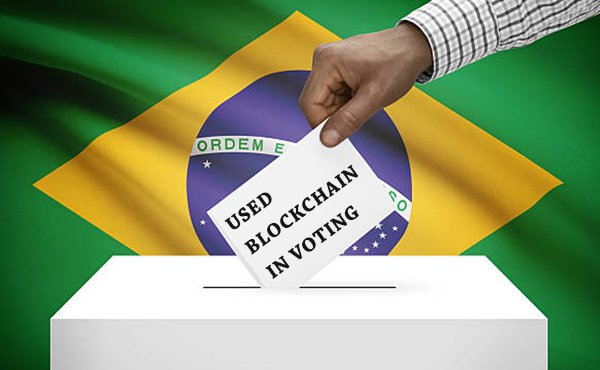Blockchain to be used in voting process in Brazil
Having a fully democratic voting system is likely one of the main aims of countries priding themselves on equality. It is also a great way to hear the people and give them what they want, based on the majority of votes.
Brazil has long hoped to provide just that with the popular petition process. It allows its more than 145 million citizens to vote on significant political decisions. However, as can be imagined with so many votes, the logistics of the process is a nightmare.
This is an important process in the country though. This is because Congress is required to discuss the petition if it has the signatures of at least 1% of the Brazil’s population. However, the lack of a dedicated and cost-effective platform to deal with these votes is a major roadblock, meaning that less and less petitions are being heard in Congress.
Gabriel Barbosa, a research associate at the Council on Hemispheric Affairs, had the following to say with regard to the costs involved in this much-needed method of political engagement:
“When people are living paycheck to paycheck, or as the common saying in Brazil goes, ‘selling their lunch to buy their dinner,’ the cost of political participation becomes high enough so that people are excluded from the political process.”
This is where the power of Blockchain Technology comes in. Congress legislative adviser, Ricardo Fernandes Paixão, and university professor, Everton Fraga, are looking into how the Ethereum blockchain network can provide the solution to storing and processing these votes, the latter made possible through smart contracts.
The votes will be placed on the blockchain as transactions, which means that they will be immutable and will not be able to be deleted. This high level of transparency means that voting fraud will become a non-issue. The country’s petition voting system will therefore become decentralized and will use a customized digital token.
However, because having millions of votes or transactions will be expensive, a hashing system could be used. All of the daily votes will be compiled and will be added as one transaction on the network.
Henrique Costa, a Universidade de Brasilia law professor, added his comments:
“In part, this is due to the absence of a platform that can securely collect the signatures of 1% of voters. We’ve been through a sort of crisis regarding the legitimacy of our laws. Although the popular initiative does exist, there is no secure way to collect people’s signatures so people can propose bills themselves.”
To make this process even easier, the country’s government is considering creating a blockchain-based mobile app for citizens to cast their votes.
Fraga had this to say on the possible success of the project:
“It would be a celebration of democracy. With this project, we are doing what the constitution says, but in practice, it hasn’t [yet] happened.”
Even though cryptocurrencies have been gaining plenty of attention over the last year, it is important to remember that its underlying technology, blockchain, has so much more to offer than simply supporting Bitcoin, as is evident with Brazil’s future voting plans.
